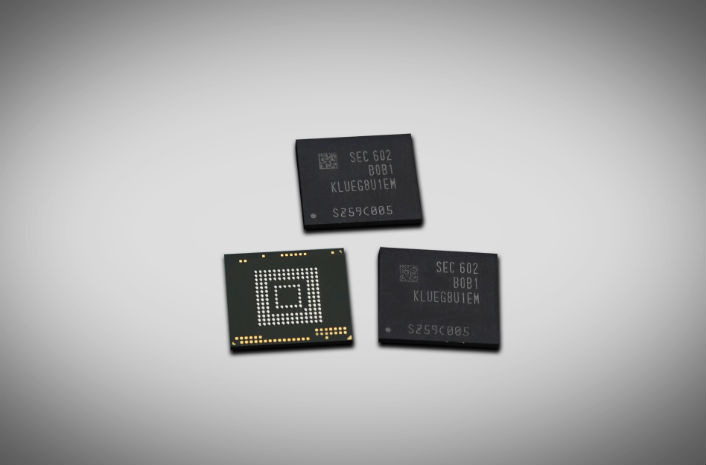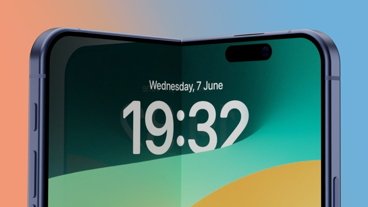Consumers may never again have to decide which photos to delete from their phone or which songs to stream from the cloud, as Samsung has announced its first 256-gigabyte storage chips designed specifically for mobile devices.
The new silicon takes advantage of the UFS 2.0 standard, which Samsung says makes them even faster than SATA-attached SSDs used in desktop computers. Sequential reads can reach 850 megabytes per second, with sequential writes clocking 260 megabytes per second.
"By providing high-density UFS memory that is nearly twice as fast as a SATA SSD for PCs, we will contribute to a paradigm shift within the mobile data storage market," Samsung marketing exec Joo Sun Choi said in a release. "We are determined to push the competitive edge in premium storage line-ups - OEM NVMe SSDs, external SSDs, and UFS - by moving aggressively to enhance performance and capacity in all three markets."
Samsung says that the chip itself is smaller than a MicroSD card, a clear win as space inside devices is increasingly constrained by thermal needs and the desire for larger batteries.
In Apple's case, it's not yet clear whether the company intends to move toward UFS in the future. Though Samsung is a major supplier of NAND chips for the iPhone, the iPhone 6s uses a PCI-E-based controller with NVMe, more similar to the storage configuration in the 12-inch MacBook than to Samsung's new solution.
 AppleInsider Staff
AppleInsider Staff


 Oliver Haslam
Oliver Haslam
 Thomas Sibilly
Thomas Sibilly
 Marko Zivkovic
Marko Zivkovic

 Wesley Hilliard
Wesley Hilliard
 Malcolm Owen
Malcolm Owen
 Andrew Orr
Andrew Orr



-m.jpg)






18 Comments
When can we get this in the form of a 2 or 4 TB external drive? ;)
There is no evidence that Apple is using Samsung NAND, they are using primarily Toshiba and San Disk. The most recent teardowns have back this up. Samsung Chips have had less and less presents in Apple products.
Apple's spent money on NVMe, they're not going to change storage protocols again.